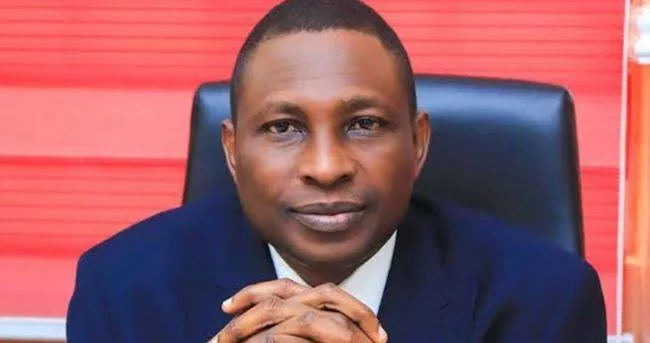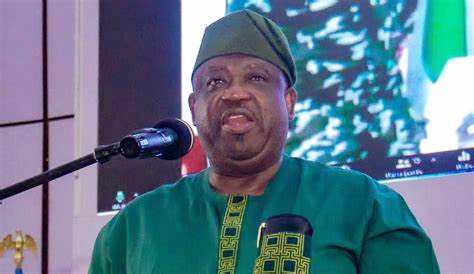Civil servants under the employment of the Federal Government are facing a low-key Christmas celebrations following the delay in payment of their December 2024 salaries.
The PUNCH also learnt that federal workers suffered delayed salaries in November 2024.
Findings by our correspondents revealed that most federal workers received their November 2024 salaries during the second week of December.
Multiple sources within the civil service told The PUNCH that the fault came from the office of the Accountant General of the Federation while other sources others noted that the delay was as a result of migration to a new payment platform.
Speaking on the delayed salaries, our correspondent, who visited the Federal Secretariat on Tuesday morning, met with a few civil servants who expressed their grievances over the matter.
A civil servant, who spoke under the condition of anonymity out of regard for civil service rules, said, “To be very honest, I am not traveling for the holidays this year because I don’t have the money. Our November salaries came very late and by the time we were paid, a lot of us were already in debt. We felt things would be different this December but the reverse is the case.”
Another civil servant, who also spoke under the condition of anonymity, said, “There is nothing shocking about this new development because our November salaries came late. Some of us prepared ahead, even though it is not enough. The cost of food items have gone up, clothes for my children and all. Payment of the December salaries at the moment will really go a long way.”
An Assistant Director in one of the MDAs outside Abuja, said, “This delay in salary payment is getting too much. It is Christmas and yet some of us can’t even buy meat talk less getting chicken for our family members. The government needs to consider our welfare.”
However, the Federal Government has explained the reasons behind recent delays in salary payments to civil servants, attributing the issue to shortfalls in allocations to some ministries and agencies.
Speaking with The PUNCH on Tuesday, the Director of Press and Public Relations at the Office of the Accountant-General, Mr Bawa Mokwa, confirmed that payments commenced on Monday and that measures had been taken to address the discrepancies.
“They have started paying since yesterday,” Mokwa stated.
He further acknowledged the delays experienced last month, saying, “Last month, you will observe that some people didn’t get their salaries on time. Some ministries were having shortfall. Yesterday, they paid all, and even the ones that had shortfall, they ensured that they were augmented and paid. So, it now depends on the banks.”
Explaining the root of the problem, Mokwa noted that the implementation of the new minimum wage had affected the salary allocations for some ministries.
“When they started paying the new minimum wage, the money assigned for salaries to these ministries was affected by the minimum wage. So, that led to shortfall for the ministries. That is what the government has addressed and augmented for all ministries to ensure that the salary was paid yesterday,” he explained.
The Accountant-General of the Federation, Dr Oluwatoyin Madein, also confirmed during an earlier event that the salaries had been paid.
However, Mokwa added that the timing of the funds reflecting in employees’ accounts would depend on individual banks.
“It varies from bank to bank on how it will drop, but they have been paid,” he said.
In July 2024, President Bola Tinubu approved an increase in the minimum wage for Nigerian workers from N30,000 to N70,000.
Earlier in January this year, the National Assembly reduced the allocation for minimum wage and salary-related payments for Ministries, Departments, and Agencies by 45 per cent in the approved 2024 budget.
President Bola Tinubu initially proposed a budget of N1tn for Public Service Wage Adjustment for MDAS (including Arrears of Promotion and Salary Increases and Payment of Severance benefits and Minimum Wage Related Adjustments).
However, the approved budget by the National Assembly and signed by the president was a significant reduction to N550bn for the same fiscal item, indicating a decrease of N450bn from the proposed amount.
Following the approval of a new minimum wage, the Federal Government said that the N3tn recurrent component of the N6.2tn supplementary budget presented to the National Assembly would largely be used to address the new national minimum wage.
In the proposed 2025 budget, the Federal Government allocated N845.28bn to address minimum wage-related adjustments following the recent increase of the minimum wage to N70,000.
The allocation is part of the Service-Wide Vote detailed in the 2025 budget, which was presented by President Bola Tinubu to the National Assembly.
The PUNCH earlier reported that the Federal Government indicated that its spending on personnel costs would increase by at least 60 per cent in 2025.
It said this is due to the implementation of the new national minimum wage and consequential adjustments for all cadres of the federal civil service.
According to the 2025-2027 Medium Term Expenditure Framework and Fiscal Strategy Paper, about N4.1tn was budgeted as personnel expenditure in the 2024 budget; hence, a 60 per cent increase means an additional N2.46tn and a total sum of N6.56tn.
The PUNCH also reported that the Federal Government plans to spend N8.52tn (inclusive of government enterprises) on personnel and pension costs for federal workers next year.
An analysis of the 2025 Appropriation Bill showed that this amount is an increase of N3.17tn or 59.16 per cent from the 2024 provision of N5.35tn.
The document also showed that government expenses on the payment of salaries alone would reach N7.54tn, marking an increase of N2.75tn from N4.79tn paid to federal workers in 2024.
The personnel and pension costs of N8.52tn and the debt service cost of N16.33tn make up a total sum of N24.85tn, gulping 53.98 per cent out of the total N46.02tn 2025 budget.
It was also observed that the government would spend more on debt servicing than it would spend on paying the salaries and pensions of its workers.

 12 hours ago
75
12 hours ago
75















 English (US) ·
English (US) ·